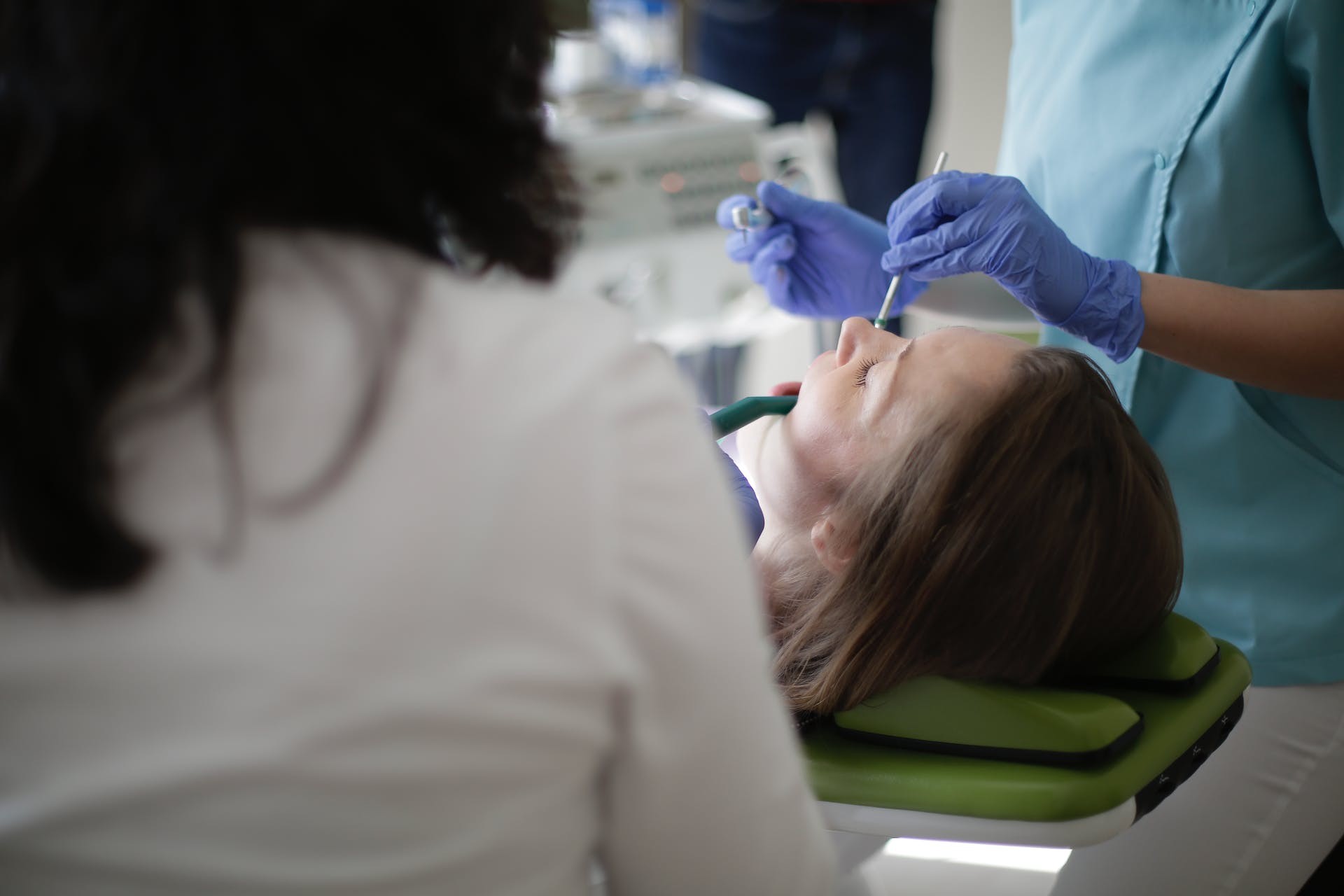Experiencing sudden pain across all your teeth can be a distressing and uncomfortable sensation. It’s a red flag that often signals an underlying issue requiring attention. While the thought of a dental visit might not be appealing, widespread tooth pain is rarely normal and usually points to a problem that needs addressing, from tooth decay to gum issues or even sinus infections. This article will explore the common culprits behind sudden pain in all your teeth and guide you on when seeking emergency dental care becomes necessary.
Understanding the Broad Toothache
When tooth pain isn’t isolated to a single tooth but affects your entire mouth, it can feel overwhelming. This generalized pain can manifest as anything from a dull ache to sharp, intense throbbing, and its origins can be diverse, encompassing both dental and non-dental factors. Identifying the precise cause is the first step towards effective pain management and preventing potential complications. Let’s delve into the common reasons for this sudden, widespread tooth discomfort.
Gum Disease (Periodontitis)
Gum disease, clinically known as periodontitis, stands out as a frequent cause of pain affecting multiple teeth. This condition arises when gums become inflamed and infected, typically due to the accumulation of plaque and tartar. The persistent inflammation can lead to the retraction of gum tissue, exposing more of the tooth structure, including the sensitive roots. This exposure heightens tooth sensitivity and can cause widespread pain. Key indicators of gum disease, alongside tooth pain, include bleeding gums during brushing or flossing, persistent bad breath, and visually receding gums. If you notice these symptoms, consulting your dentist is crucial for diagnosis and treatment.
Sinus Infections and Tooth Pain
Surprisingly, a sinus infection can be a hidden cause of what feels like tooth pain across your mouth. Your maxillary sinuses are located directly above your upper teeth. When these sinus cavities become infected, they swell and can press down on the roots of your upper teeth. This pressure can manifest as pain in multiple upper teeth simultaneously, often mimicking dental issues. If your toothache is accompanied by typical sinus infection symptoms such as sinus pressure, headache, nasal congestion, and discharge, a sinus infection is a likely cause. Treating the sinus infection will usually resolve the associated tooth pain.
Bruxism: The Impact of Teeth Grinding
Bruxism, or teeth grinding, is a common habit, often unconscious, especially if it occurs during sleep. The relentless grinding action exerts significant force on your teeth and jaw joints. This excessive pressure can lead to pain that feels widespread throughout your mouth. Over time, bruxism can also wear down tooth enamel, increasing tooth sensitivity and further contributing to pain. If you regularly wake up with sore teeth, jaw pain, or headaches, or if a sleep partner reports hearing you grind your teeth at night, bruxism could be the underlying reason for your generalized tooth pain.
Temperature Sensitivity Across Multiple Teeth
Sudden tooth pain triggered by hot or cold foods and drinks suggests temperature sensitivity. This sensitivity can develop due to several factors, including enamel erosion that thins the protective outer layer of teeth, exposure of tooth roots often caused by gum recession, or as a temporary side effect of recent dental procedures. Unlike tooth decay, which typically causes pain in a specific tooth, temperature sensitivity can affect multiple teeth simultaneously, leading to a widespread discomfort.
 Dentist carefully examining a patient's teeth to identify the cause of their widespread tooth pain
Dentist carefully examining a patient's teeth to identify the cause of their widespread tooth pain
Dental Abscesses and Widespread Pain
A dental abscess is a serious condition characterized by a pocket of pus that forms in the teeth or gums due to bacterial infection. It’s a potentially dangerous situation that may require urgent dental intervention. While often associated with pain in a single tooth, if the infection is severe or spreads, a dental abscess can cause pain that seems to affect all your teeth. Symptoms of an abscess include intense, persistent toothache, heightened sensitivity to temperature changes, fever, and swelling in the face or cheek. If you suspect a dental abscess, immediate dental care is crucial to prevent the infection from spreading and causing more serious health issues.
Nutritional Deficiencies and Oral Health
Certain nutritional deficiencies, particularly in vitamins and minerals vital for oral health, can contribute to generalized tooth pain. For instance, insufficient levels of Vitamin D, calcium, or B vitamins can negatively impact the health of your teeth and gums, leading to discomfort and pain. Ensuring a balanced diet rich in essential nutrients is important for overall oral health. If you suspect nutritional deficiencies might be contributing to your tooth pain, it’s wise to consult your doctor for a nutritional assessment, especially after ruling out direct dental problems.
Systemic Health Conditions and Tooth Pain
In some instances, tooth pain can be a symptom of underlying systemic health conditions. Conditions like heart disease, diabetes, and certain autoimmune disorders can affect blood flow to the gums and teeth or trigger inflammation throughout the body, which can manifest as tooth pain. If you have chronic health conditions and experience unexplained tooth pain, it’s important to consider the possibility of a connection. However, always consult with your dentist first to rule out any dental causes before attributing tooth pain to a systemic condition.
Read Also: Why Do My Teeth Hurt When I Bite Down? – A Dentist’s Explanation
When Is It Time to See a Dentist?
Experiencing sudden pain in all your teeth warrants a prompt appointment with your dentist. A dental professional can accurately diagnose the cause of your pain and recommend the most effective treatment plan. If the pain is severe, or if it’s accompanied by concerning symptoms like swelling, fever, or signs of infection (pus, redness), it’s essential to seek emergency dental care as quickly as possible. Delaying treatment for widespread tooth pain, particularly if it’s intense or linked to infection, can lead to more serious complications.
The Takeaway Message
Sudden, generalized tooth pain can be alarming, but understanding the possible causes empowers you to take the right steps towards relief. From common dental issues like gum disease and bruxism to less obvious culprits like sinus infections and nutritional deficiencies, various factors can trigger this discomfort. Don’t panic, but don’t ignore it either. Remember, timely consultation with your dentist is the key to effectively addressing the pain, maintaining your oral health, and ensuring any underlying issues are properly managed. If you are experiencing persistent tooth pain, seeking professional dental advice is always the best course of action to get the treatment you need and get back to smiling comfortably.
Explore Further: Why Are My Teeth See-Through? Understanding Enamel Translucency

